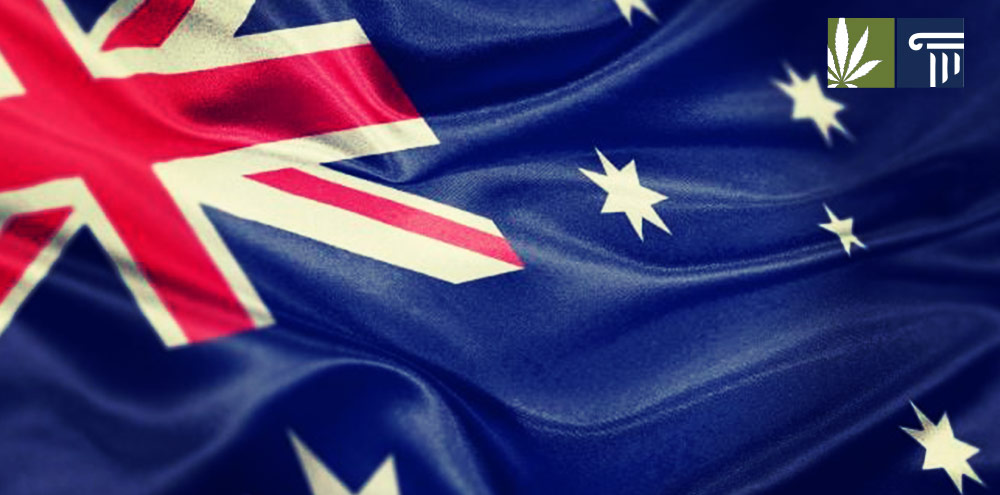New Zealand citizens will have their say on whether the country should legalize adult-use marijuana through a referendum on the issue held alongside a general election this September. And lawmakers have now finalized the full details of the cannabis legalization proposal which voters will decide upon.
The preamble to the proposed measure, called the “Cannabis Legalisation and Control Bill,” reads that its purpose is to “authorize, regulate, and control the cultivation, processing, use, and sale of cannabis in New Zealand, with the intent of reducing harms from cannabis use.”
If approved by voters, the bill would legalize marijuana purchases, possession and consumption for adults 20 and older. The bill contains provisions allowing for on-site cannabis consumption at retail outlets, where customers may purchase up to a maximum of 14 grams of marijuana. Individuals would be permitted to gift up to the same amount to another person. The bill also permits the cultivation of two cannabis plants for personal use, with a maximum of four per household.
However, if the constitutional change is approved by voters, marijuana would not be automatically legalized. Instead, responsibility for passing the “Cannabis Legalisation and Control Bill” would fall on lawmakers. This means that the bill would still be subject to various amendments, and it is unclear how extensive these would be.
The bill calls for the establishment of a regulatory body for the cannabis industry. Proposed regulations under the bill include an annual cap on the amount of marijuana cultivated and sold in the licensed market as well as controls on THC potency. THC levels would have to be on display on cannabis products, whilst advertising for marijuana products would be banned.
Initially, cannabis retailers would only be able to sell marijuana seeds and plants. It would later be up to the newly-established Cannabis Regulatory Authority to allow the licensed sales of marijuana concentrates and edibles.
The bill proposes various measures to ensure small, local and indigenous cannabis businesses can participate fully in the industry. Marijuana business would be limited to one type of license, meaning cannabis growers could not, for example, sell their product to customers at on-site consumption locations. The Cannabis Regulatory Authority would ensure that no marijuana business supplies or sells more than 20 percent of the yearly cap on cultivated cannabis
“I hope the provisions around market share limit the size of companies and avoid the idiocy of markets like Canada where founder/investor greed seems to have been the overriding driver of industry expansion,” said Manu Caddie, regulation and innovation lead for Rua Bioscience.
“The proposed rules should enable small and medium-sized companies to be sustainable without the need for overinflated valuations and the boom and bust experienced elsewhere,” she added.
The New Zealand Institute of Economic Research projects the bill would serve to generate $490 million through tax revenues each year, assuming that estimated illicit sales are replaced by the regulated market.
New Zealand’s cannabis referendum is the result of an agreement between the country’s three major political parties. The Green Party pledged to support Labour Party leader Jacinda Ardern as the country’s prime minister following the 2017 election partly on the basis of putting the question of marijuana legalization to voters through a referendum.
“It has taken two and a half years of negotiation behind the scenes across our Parliament and decades of work by activist, advocates and researchers, who have sought to understand how best to create an evidence-informed approach to reduce drug harm in our communities,” said MP Chlöe Swarbrick of the Green party, one of the driving forces behind the Cannabis Legalisation and Control Bill.
“We are taking this conversation out of petty partisan politics and placing it in the hands of you.”
The bill in its final version has also garnered praise from drug reform advocates.
“These final new details strengthen the controls from the initial draft, making it a world-leading piece of public health legislation. The bill delivers government-controlled regulations over the production, supply and use of cannabis, with the intent of reducing harms, particularly for young people,” said Ross Bell, executive director of the New Zealand Drug Foundation.
“At a time when comprehensive public health controls are proving their worth and saving lives, we applaud the Government’s work at designing cannabis regulations appropriate for New Zealand’s local needs,” he added. “This final version gives all the information New Zealanders need to help inform their vote”
Voter approval for the constitutional change is far from certain, though momentum does appear to be with the measure. A recent survey found 54 percent of registered voters will support the bill, which is a six percent increase from the previous poll.
A comprehensive summary of the proposed marijuana legislation is available online.






